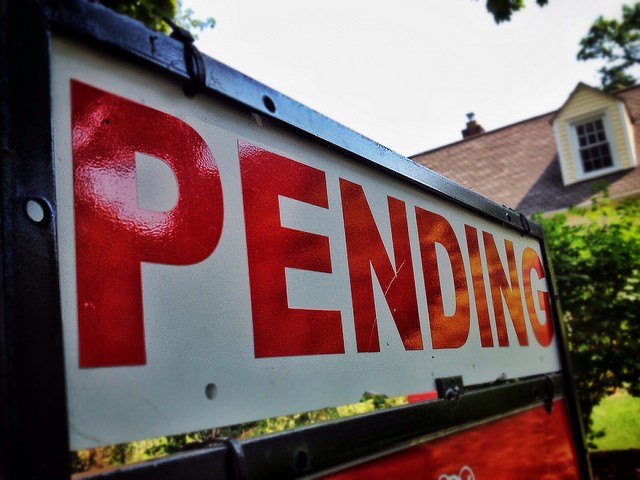To-Dos: Your February Home Checklist
Bedroom Communities Top List Of Safest Cities
A “bedroom community” refers to a suburb outside a major metropolis where the majority of residents commute to the city for work. These town have a number of characteristics that identify them but, according to new research from NeighborhoodScout, they are also known for safety. In fact, these suburban cities topped their most recent list of the nation’s safest cities. Andrew Schiller, CEO of NeighborhoodScout, says bedroom communities combine features that are attractive to home buyers. “We continue to see bedroom communities, which are within large metro areas and near major urban centers like Boston, Chicago, and New York, make the top of our list,” Schiller says. “These safe communities within the urban/suburban fabric of America’s largest metropolitan areas often combine access to high-paying jobs in the urban center, decent schools, and a high quality of life. This access to opportunity increases home values, with the result often being lower crime.” Cities in the Northeast topped the list, including Ridgefield, CT, which was named the country’s safest city. More here.

Single Home Buyers Face Added Challenges
Without the benefit of two incomes, single home buyers face some added challenges when looking to buy a house. For one, it takes longer to save for a down payment. In fact, according to a new analysis, married or partnered couples can save a 20 percent down payment on the typical home in less than five years. For single home buyers, it takes closer to 11 years. Add to that, single home buyers are more likely to be looking for a smaller, affordable home – which is precisely the type of house that is currently in highest demand. Zillow senior economist, Aaron Terrazas, says two incomes helps with savings but also with increasing the number of homes available to buy. “Single buyers typically have more limited budgets, which means they are likely competing for lower-priced homes that are in high demand,” Terrazas said. “Having two incomes allows buyers to compete in higher priced tiers where competition is not as stiff.” Of course, your individual financial situation and local market conditions will ultimately determine how much you’ll need to save and how much competition you’ll face for available homes. But single, married, or otherwise, it’s best to be as prepared as possible before heading out to look for a house to buy. More here.

Contracts To Buy Homes Rise For 3rd Straight Month
If you look at just about any reading of the current housing market, you’ll find that there are a lot of Americans interested in buying a home right now. Whether it’s because of pent-up demand that built up in the years following the housing crash or a drive to buy now while mortgage rates are still well below their historical norm, the fact is buyer demand is high. The most recent National Association of Realtors’ Pending Home Sales Index provides more evidence of this. That’s because the index – which measures the number of signed contracts to buy homes – ended the year with its third consecutive monthly increase. Lawrence Yun, NAR’s chief economist, says the housing market has started the year with a little bit of momentum. “Another month of modest increases in contract activity is evidence that the housing market has a small trace of momentum at the start of 2018,” Yun said. “Jobs are plentiful, wages are finally climbing and the prospect of higher mortgage rates are perhaps encouraging more aspiring buyers to begin their search now. More here.

How Your Neighborhood Can Improve Your Health
Home Price Increases Mean Buyers Need To Prepare
It isn’t news that home prices have been headed upward for awhile now. And, according to the latest S&P Case-Shiller Home Price Indices, they are continuing to climb at around the same pace as they have been in recent months. Which is to say, the price increases haven’t yet slowed. Of course, how quickly prices are increasing depends on where you’re looking to buy. Large metropolitan areas – and especially those in the West – are seeing the sharpest increases, while the price gains are more muted in the Midwest. But, no matter where you are, the best way to prepare for higher prices is to know what you want, what you can afford, and where your limits are. In competitive and higher priced markets, having a firm idea of what you can spend and where you’ll compromise will make it less likely that you’ll end up going over budget because of a bidding war or buying more house than you can comfortably afford. Making sure you’re prepared before heading out to look at homes also means securing financing in advance, so you’ll be ready to make an offer when you find a home you love. More here.

Buyer Basics: What’s A Contingency?
A Few Small Repair Jobs To Do This Winter
Homeownership Seen As Path To Financial Security
There’s no shortage of opinions, these days. Which means, you’ve probably heard varying viewpoints on whether or not buying a house is really a smart investment. Especially following the housing crash, it became more popular to say that buying a home may not, in fact, be a better financial choice than renting. But despite the debate, recent research shows that the vast majority of Americans still see homeownership as a path to increased financial security. For example, a recent survey from NeighborWorks found 81 percent of all adults and 71 percent of millennials believe owning a home is good for financial stability. Among the reasons this remains true is the fact that, unlike rent, your monthly mortgage payment is actually buying you an increasing percentage of ownership in your home. As you build up a larger share of ownership and your equity increases, so does your net worth – making homeownership an excellent way of investing in something long term while also enjoying the immediate benefits. More here.


